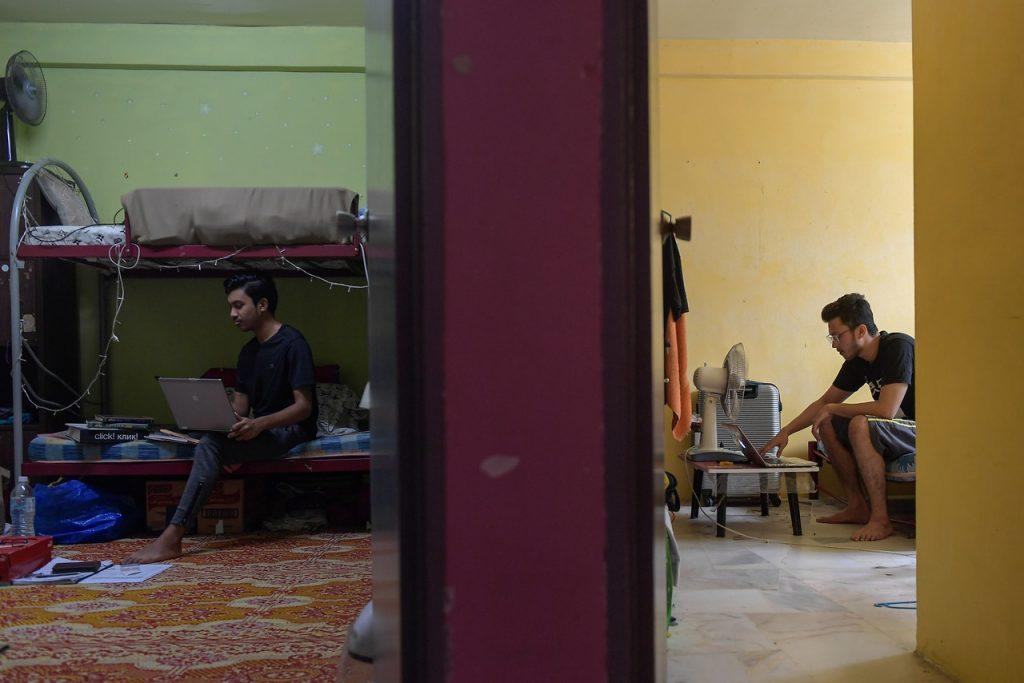Has Covid-19 killed the stigma on online degrees?
Malaysian universities and colleges have embraced e-learning despite the image problem associated with online degrees.
Just In
Not long ago, a deputy minister found himself at the centre of controversy following claims that the bachelor’s degree he was conferred by an American university was obtained through long-distance learning.
Marzuki Yahya, the deputy foreign minister under the Pakatan Harapan government, would soon find himself mocked on social media with critics accusing him of obtaining a fake degree, all because his tertiary education had been completed the unconventional way.
But he was not alone.
In 2013, then-ministers under the Barisan Nasional government Richard Riot and Ewon Ebin were also accused of having “fake” degrees, as they were obtained through online learning.
But has the Covid-19 pandemic changed the widely held perception that online degrees are less dignified than those obtained through years of attending lectures in the hallowed halls of universities?
Today, some 1.5 billion tertiary students worldwide have moved to online learning as part of measures by governments to ensure minimal physical contact in the effort to contain the virus.
However, debate still continues on the quality of the graduates produced through online learning and those who graduated the traditional way.
In the future, jobseekers’ online degrees could be more acceptable to employers, especially if they are issued by established institutions.
Prof Teo Kok Seong of Universiti Kebangsaan Malaysia (UKM) said there are several reasons behind the perception that online degrees are inferior.
“Firstly, it is a relatively new mode of education, yet to be efficiently tested for its ‘authenticity’,” Teo from UKM’s Institute of Ethnic Studies told MalaysiaNow.
“Secondly, employers are suspicious of degrees earned in this way since it is a new mode of learning which has not really been proved as real in the traditional way of learning.”
Yet another reason, said Teo, has to do with instances of academic dishonesty.
“Cheating has been found to occur in online assessments, to render these degrees as falsified in a way,” he added.
But Teo agrees that the new norm in the education sector worldwide could change this perception.
In the future, he said, jobseekers’ online degrees could be more acceptable to employers, especially if they are issued by established institutions.
Online lectures and tutorials were implemented in a big way for the first time when public universities sealed their campuses after the movement control order this year.
Many local universities offer a major selection of their courses – between 30% and 60% – online.
According to guidelines issued by the Malaysian Qualifications Agency (MQA) on getting accreditation for distance-learning courses, online learning can be held based on the suitability and flexibility of the course in question.
MQA, which is tasked with ensuring the quality of higher learning institutions in the country, has also issued several guidelines to public universities and colleges on continuing their courses during the pandemic.
MQA CEO Hussaini Omar said public universities must ensure the quality of their online courses.
“They should also be able to take into account the interests and welfare of students and staff,” he said, adding that every improvement to online programmes needs to be carefully recorded in order to receive accreditation from MQA.
“Maybe post-pandemic, hopefully, some of that stigma will be removed given the necessity that we have for online learning.”
The universal stigma on online learning had caused some leading universities in the West to distinguish between traditional and online degrees.
An MBA obtained through online learning, for example, was called “iMBA”.
But Covid-19 could change that.
“I think maybe post-pandemic, hopefully, some of that stigma will be removed given the necessity that we have for online learning,” Rachel Hewitt of the Higher Education Policy Institute, a British think tank on higher learning, was recently quoted as saying by the BBC.
Teo, meanwhile, appears to be a firm believer in learning the traditional way.
He said the acceptance of online degrees could be determined based on how long Covid-19 continues.
“Online learning during these trying times due to Covid-19 movement restrictions is only temporary in nature. It is a new normal and it will not be an accepted norm later.
“The traditional physical classroom or lecture hall will forever be the norm as education is primarily about face-to–face physical socialisation and not social isolation as in online learning, despite the digital interaction,” he said.
Subscribe to our newsletter
To be updated with all the latest news and analyses daily.
